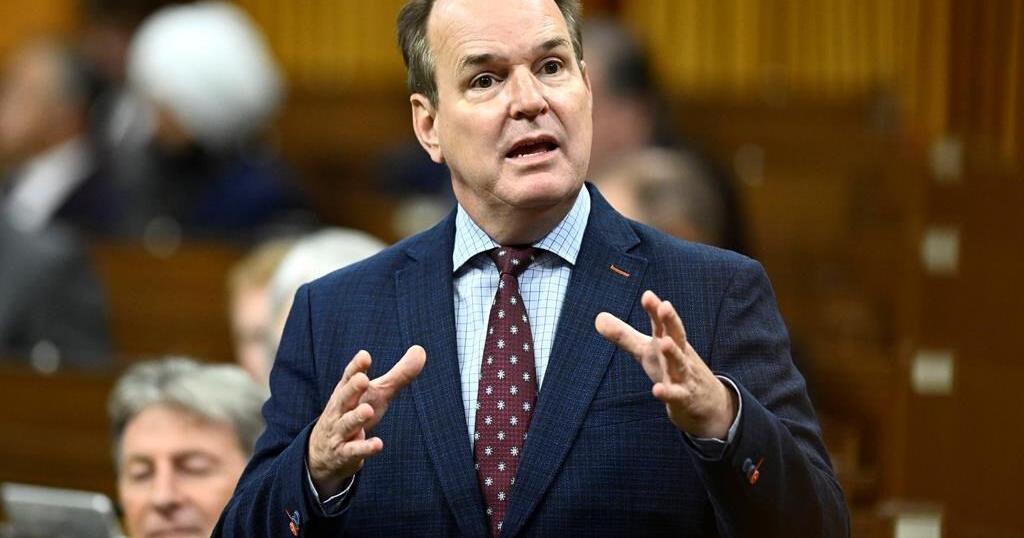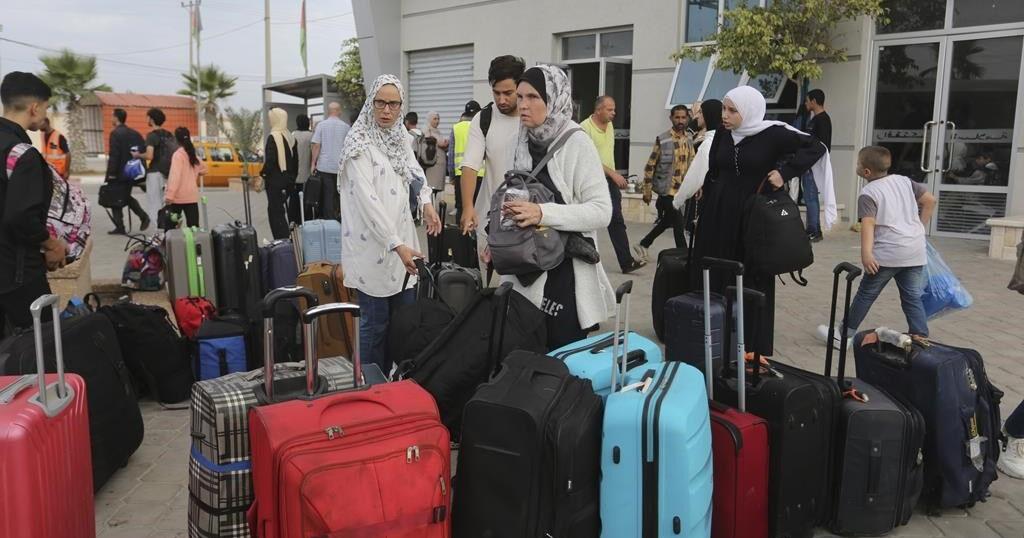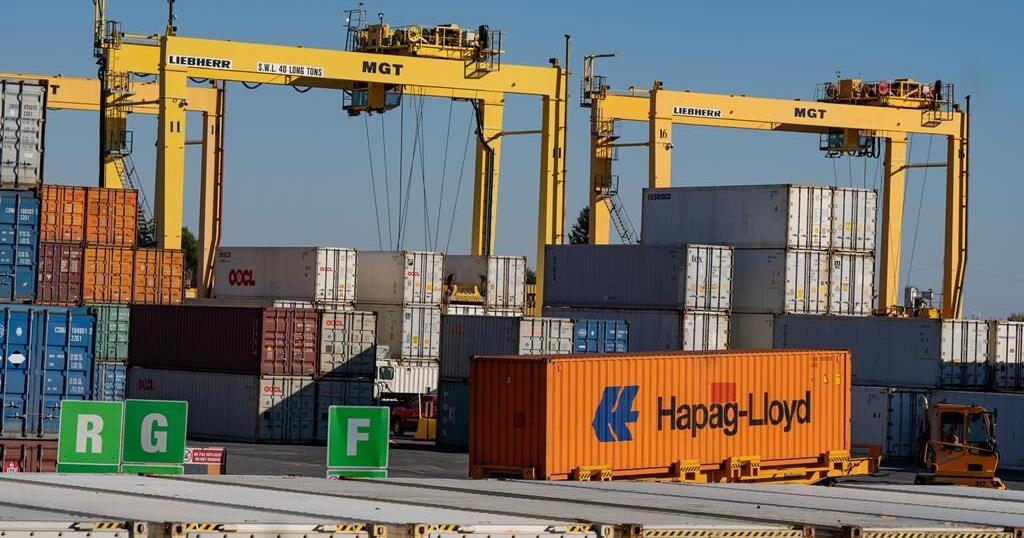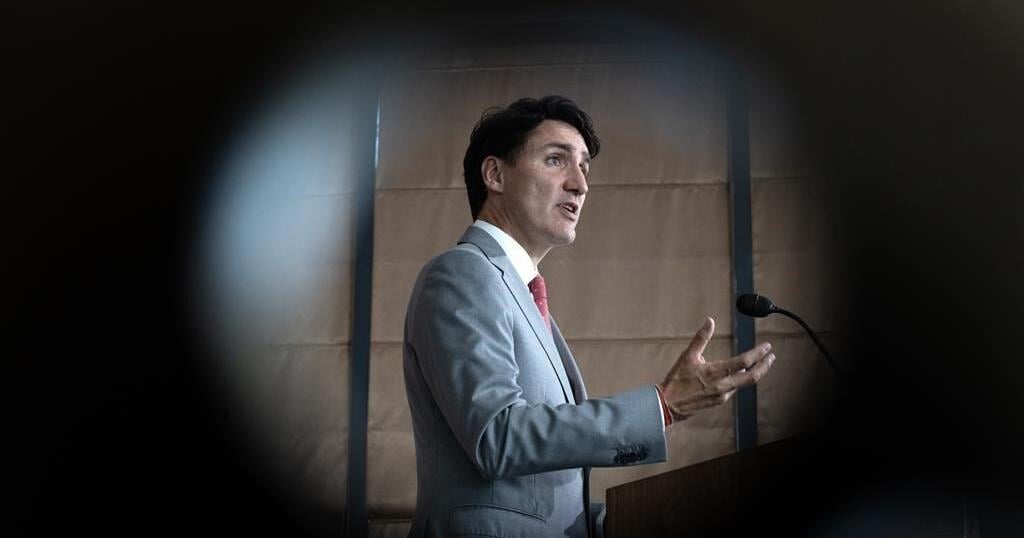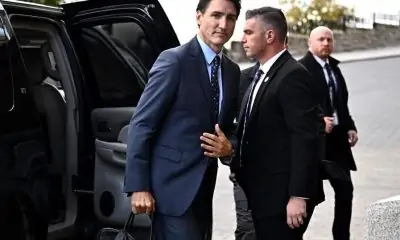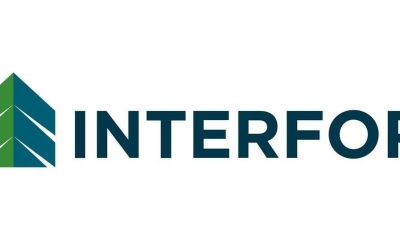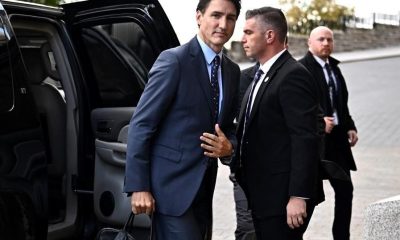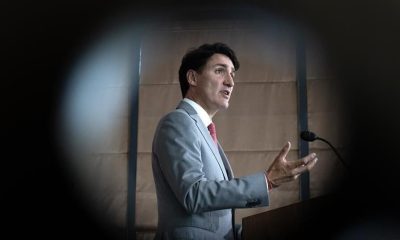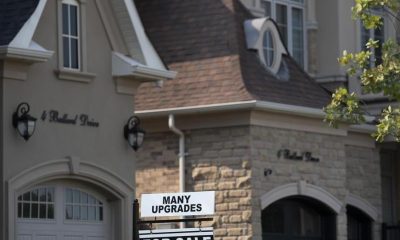OTTAWA – Conservative Leader Pierre Poilievre has refused to get the security clearance necessary to be briefed on a list of people in his party who are involved in or vulnerable to foreign interference, Prime Minister Justin Trudeau told a federal commission of inquiry Wednesday.
“I have the names of a number of parliamentarians, former parliamentarians and-or candidates in the Conservative Party of Canada who are engaged (in) or at high risk of, or for whom there is clear intelligence around foreign interference,” Trudeau said as part of his sworn testimony.
“I have directed CSIS and others to try and inform the Conservative party leader to be warned and armed,” so that Poilievre could make decisions to protect the integrity of the party and guard members against attempts at foreign interference, he said.
Trudeau said Poilievre has opted not to receive classified briefings — a decision that he finds bewildering.
“The decision by the leader of the Conservative party to not get those classified briefings means that nobody in his party — not him, nobody in a position of power — knows the names of these individuals and can take appropriate action,” Trudeau said.
He said it also means nobody can stand up for the people in question if the intelligence is poor, incomplete or simply contains allegations from a single source.
Poilievre has previously defended his choice not to try to obtain a high-level security clearance.
He has said it would prevent him from speaking out about what he has learned in secret briefings.
In response to Trudeau’s comments on Wednesday, Poilievre released a statement calling on the prime minister to publicly release the names.
“But he won’t. Because Justin Trudeau is doing what he always does: he is lying,” Poilievre said.
The Conservative leader also said his chief of staff receives confidential briefings, and has not been told about any past or present member of the party being involved in foreign interference.
“If Justin Trudeau has evidence to the contrary, he should share it with the public. Now that he has blurted it out in general terms at a commission of inquiry — he should release the facts. But he won’t — because he’s making it up,” Poilievre said in the statement.
Trudeau did not elaborate on the nature or scope of the information he has received about Conservatives and foreign interference activities.
The National Security and Intelligence Committee of Parliamentarians said in June that some unnamed parliamentarians were “semi-witting or witting” participants in the efforts of foreign states to meddle in Canadian politics.
The stark but vague assertion by NSICOP, an intelligence watchdog made up of MPs and senators who are sworn to secrecy, triggered ongoing concerns that people knowingly involved in interference might still be active in politics.
However, Public Safety Minister Dominic LeBlanc told the inquiry Tuesday it is an irresponsible, “partisan exaggeration” to claim there are traitors or treasonous people sitting in Parliament based on the findings of the spy watchdog report.
“Those are criminal phrases that are not borne out by the evidence and by the work of the police or the security agencies.”
Nathalie Drouin, who advises the prime minister on intelligence matters, recently told the inquiry the watchdog’s conclusion that some MPs might have acted in a treasonous manner makes her very uncomfortable, because that’s not what she sees.
Drouin said after reviewing the relevant intelligence she found no MPs had engaged in espionage, sabotage or other activities that put Canada’s security at risk.
LeBlanc said Tuesday that conclusion is consistent with the intelligence he has seen as minister.
Trudeau indicated Wednesday he takes exception to how NSICOP framed the matter, “because it worried Canadians and talked about traitors in Parliament when that is not the assessment that our intelligence agencies put forward.”
The commission of inquiry’s latest round of hearings have focused on ways to better detect and deter foreign meddling.
Trudeau said Wednesday the world is more uncertain and less safe than ever due to the rise of authoritarian powers determined to sow chaos in democracies like Canada.
He said the answer to the aggression of countries like China and Russia is to reinforce the rule of law and the international order.
“We cannot allow might to become right once again in the world.”
The RCMP and other government officials recently told India its diplomats were persons of interest in several investigations into violent crimes in Canada.
On Monday, Canada ordered six Indian diplomats out of the country, and India swiftly retaliated with the expulsion of Canadian diplomats.
This report by The Canadian Press was first published Oct. 16, 2024.

